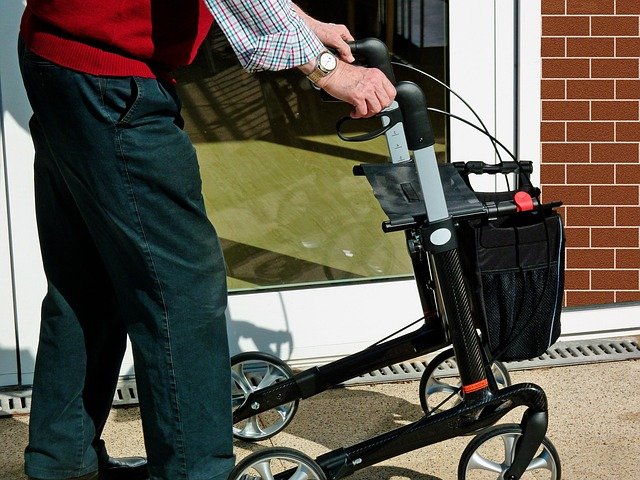Smart Walkers: Your Guide to Safer, Smarter Mobility
As technology continues to revolutionize healthcare and mobility solutions, smart walkers represent a significant advancement for seniors seeking enhanced independence and safety. These innovative mobility aids combine traditional walker functionality with cutting-edge technology to provide features like fall detection, navigation assistance, and health monitoring. For seniors and their families exploring mobility options, understanding smart walkers can help make informed decisions about maintaining active, independent lifestyles while prioritizing safety and well-being.

What Are Smart Walkers?
Smart walkers are technologically enhanced mobility aids that go far beyond basic walking support. Unlike traditional walkers, these devices integrate sensors, GPS systems, emergency alert features, and sometimes even artificial intelligence to create a comprehensive mobility and safety solution. Smart walkers typically maintain the familiar four-wheeled rollator design but incorporate digital displays, built-in communication systems, and advanced stability features.
These devices often connect to smartphone apps or home monitoring systems, allowing family members and caregivers to track the user’s activity levels, location, and overall well-being. Some models include features like automatic braking systems, obstacle detection sensors, and even medication reminders, making them particularly valuable for seniors with cognitive concerns or those living independently.
Benefits of Using Smart Walkers
Smart walkers offer numerous advantages that extend well beyond traditional mobility support. The most significant benefit is enhanced safety through features like fall detection sensors and automatic emergency alerts. When a fall or sudden stop is detected, these walkers can automatically contact emergency services or designated family members, potentially saving crucial response time.
Navigation assistance represents another major advantage, particularly for seniors with mild cognitive impairment or those venturing into unfamiliar areas. GPS-enabled smart walkers can provide turn-by-turn directions and help users find their way home safely. Health monitoring capabilities allow users and their healthcare providers to track walking patterns, distance covered, and overall activity levels, contributing to better health management and early detection of mobility changes that might indicate health issues.
Key Features to Look For
When evaluating smart walkers, prioritize features that align with specific mobility needs and technical comfort levels. Essential features include reliable fall detection systems, GPS tracking with geofencing capabilities, and long-lasting battery life. Look for walkers with intuitive interfaces, as complex technology can be counterproductive for seniors who may feel overwhelmed by too many options.
Weight capacity and adjustability remain crucial considerations, just as with traditional walkers. Smart walkers should offer easy height adjustment, comfortable grip handles, and adequate storage space for personal items. Advanced features to consider include automatic braking systems, LED lighting for low-visibility conditions, weather resistance for outdoor use, and integration capabilities with existing smart home systems or medical alert services.
Price Range and Budget Tips
Smart walkers typically range from $800 to $3,500, depending on features and technology complexity. Basic models with essential smart features like GPS tracking and emergency alerts generally cost between $800 and $1,500. Mid-range options with additional health monitoring and navigation features typically fall in the $1,500 to $2,500 range. Premium models with advanced AI, comprehensive health tracking, and sophisticated safety systems can exceed $3,000.
| Smart Walker Model | Provider | Key Features | Price Estimate |
|---|---|---|---|
| SafePath Smart Walker | MobilityTech Solutions | GPS, fall detection, emergency alerts | $1,200 - $1,500 |
| WalkSafe Pro | Senior Mobility Innovations | Health monitoring, automatic braking, app integration | $1,800 - $2,200 |
| Guardian Smart Rollator | TechCare Mobility | AI navigation, medication reminders, family alerts | $2,500 - $3,200 |
| EasyGo Smart Walker | Adaptive Equipment Co. | Basic GPS, emergency button, long battery life | $900 - $1,100 |
Prices, rates, or cost estimates mentioned in this article are based on the latest available information but may change over time. Independent research is advised before making financial decisions.
Budget-conscious buyers should consider insurance coverage options, as some Medicare Advantage plans or private insurance policies may cover portions of smart walker costs when prescribed by healthcare providers. Many manufacturers offer financing plans or rental programs, making these devices more accessible for seniors on fixed incomes.
Tips for Choosing the Right Smart Walker for You
Selecting the appropriate smart walker requires careful consideration of individual needs, technical comfort levels, and lifestyle factors. Begin by consulting with healthcare providers, including physicians and physical therapists, who can assess specific mobility requirements and recommend features that would be most beneficial. Consider conducting hands-on demonstrations whenever possible, as comfort and ease of use vary significantly between models and individuals.
Evaluate the learning curve associated with different smart walker features. While advanced capabilities can provide substantial benefits, they’re only valuable if users feel comfortable operating them regularly. Consider starting with models that offer basic smart features and the option to add capabilities over time. Additionally, assess the support system available from manufacturers, including customer service quality, warranty coverage, and local service availability, as these factors become crucial for long-term satisfaction and device reliability.
Smart walkers represent a promising intersection of mobility assistance and modern technology, offering seniors enhanced safety, independence, and peace of mind. By carefully evaluating features, costs, and individual needs, seniors and their families can make informed decisions about incorporating these innovative devices into their mobility solutions. As technology continues advancing, smart walkers will likely become increasingly sophisticated and accessible, making them valuable tools for aging in place safely and confidently.
This article is for informational purposes only and should not be considered medical advice. Please consult a qualified healthcare professional for personalized guidance and treatment.




